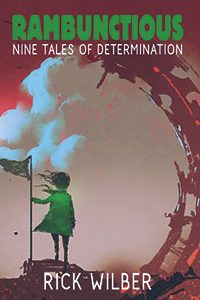Colleen Mondor reviews A Thousand Beginnings and Endings edited by Ellen Oh & Elsie Chapman
 A Thousand Beginnings and Endings, Ellen Oh & Elsie Chapman, eds. (Greenwillow 978-0-06-267115-8, $17.99, 336pp, hc) June 2018.
A Thousand Beginnings and Endings, Ellen Oh & Elsie Chapman, eds. (Greenwillow 978-0-06-267115-8, $17.99, 336pp, hc) June 2018.
In the introduction to A Thousand Beginnings and Endings, editors Elsie Chapman & Ellen Oh write of their deep love for myth and legend, something many readers will likely identify with. However, for Chapman and Oh, immersion in tales of Greek and Norse gods, while exciting, was always a bit disappointing. The most famous shared myths, it seemed, were rarely Asian, and when they were, they did not come from Asian writers. Those stories “felt superficial at best and at worst, quite hurtful,” write the editors. “We longed for nuance and subtlety and layers, the embedded truths about culture that – more often than not – can only come from within.”
The anthology they have created does a fabulous job of addressing their youthful frustrations and I ardently hope it is one of many such anthologies to come. The contributors cover a wide range of Asian experience and take on their chosen retellings using a variety of genres and settings, with interstellar science fiction, robotics, contemporary American fantasy, and fairytale adventures all making an appearance. It’s impossible to choose a favorite here as the selection is so varied and the stories so unique. Suffice to say there truly is something for everyone in A Thousand Beginnings and Endings and it’s hard to imagine anyone being disappointed by the editorial selections.
As an overview, consider that Roshani Chokshi’s “Forbidden Fruit” infuses a tale about a Filipino mountain goddess with poignance and tragedy while Alyssa Wong travels to the American southwest to write of hungry ghosts with more than a few surprises in “Olivia’s Table” and Lori Lee channels a bit of Isaac Asimov in her “Steel Skin”, a stunningly original take on a Hmong folktale.
Sona Charaipotra reconsiders a Punjabi folktale of immortal love in a way that does not end as you expect with “Still Star-Crossed”, while the sisters in Aliette de Bodard’s “The Counting of Vermillion Beads” transforms a Vietnamese folktale of sibling rivalry into something that demands cheers from readers for how it celebrates the power of love and loyalty against all odds.
E.C. Myers has a tale for gaming fans that is tender and sweet in “The Land of the Morning Calm”, which celebrates multiple examples of Korean folklore and myth, while Preeti Chhibber delights with her contemporary story of an arrogant young man, a team of determined young women and a dance-off that goes a bit awry. “Girls Who Twirl and Other Dangers” is a frothy mix of girl power and Bollywood that is sure to be a pleaser for many.
Meanwhile, Aisha Saeed’s “The Smile” conjures up the dark realities of those young women who unfortunately catch the eye of men in power. This retelling of a dark South Asian legend investigates what love can mean when it is not given freely and challenges readers to look hard at many long-accepted fairy tales. It hits the mark solidly in the #MeToo moment.
A complicated sibling relationship returns (with bonus goblins!) in Reneé Ahdieh’s “Nothing Into All”, a second Korean entry in the collection, and both Rahul Kanakia (“Spear Carrier”) and Shveta Thakrar (“Daughter of the Sun”) were inspired by the Mahabharata, the longest epic poem in recorded history, for their stories, one of which is the tale of an interstellar alien battle and the other a romance with a feminist twist.
Finally, Melissa de la Cruz has a delicious mean girl/vampire mashup with Filipino origins in “Code of Honor”, while Cindy Pon gives voice to a long overlooked girl from Chinese legend (with a nod to Jane Eyre) in “The Crimson Cloak”, Julie Kagawa shares the wrath of the Japanese kitsune with “Eyes Like Candlelight”, and editor Elsie Chapman’s “Bullet, Butterfly” considers the complexities of love, family and country in her retelling of China’s Romeo and Juliet.
There is obviously a lot to savor in A Thousand Beginnings and Endings, but there is one inclusion by the editors that I found particularly significant. After each story, the authors include a brief history of the myth or folktale that inspired them and why, providing much needed insight into the tales that inspired these stories and a nice personal touch as to why these stories mean so much.
Colleen Mondor, Contributing Editor, is a writer, historian, and reviewer who co-owns an aircraft leasing company with her husband. She is the author of “The Map of My Dead Pilots: The Dangerous Game of Flying in Alaska” and reviews regularly for the ALA’s Booklist. Currently at work on a book about the 1932 Mt. McKinley Cosmic Ray Expedition, she and her family reside in the Pacific Northwest and Alaska. More info can be found on her website: www.colleenmondor.com.
This review and more like it in the July 2018 issue of Locus.
 While you are here, please take a moment to support Locus with a one-time or recurring donation. We rely on reader donations to keep the magazine and site going, and would like to keep the site paywall free, but WE NEED YOUR FINANCIAL SUPPORT to continue quality coverage of the science fiction and fantasy field.
While you are here, please take a moment to support Locus with a one-time or recurring donation. We rely on reader donations to keep the magazine and site going, and would like to keep the site paywall free, but WE NEED YOUR FINANCIAL SUPPORT to continue quality coverage of the science fiction and fantasy field.






